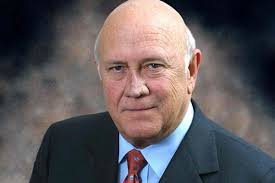As the sun rises on February 24th, South Africa awakens to a new day and echoes of its ever-evolving history. But what specific tales does this particular date whisper? We embark on a journey to uncover the threads woven into the fabric of February 24th in South Africa.

1992: De Klerk announces referendum date
F.W. De Klerk, former South African President, set the referendum date for the reform process he initiated on February 2, 1990. Scheduled for March 17th, voters were asked to say Yes or No to the process. De Klerk viewed the referendum as a way to seek white approval for constitutional reforms promised during the 1989 elections.
1992: ANC promulgates its constitutional proposals
The ANC proposed a two-phase transition to post-apartheid democracy during the CODESA talks. The first phase would appoint an all-party interim government council, while the second phase would elect a constituent assembly to replace the current tricameral parliament.
1988: 17 anti-apartheid organizations are restricted under Public Safety Act’s Section 6
On this day in history, 17 anti-apartheid organizations were restricted under Section 6 of the Public Safety Act of 1953 by State President P.W. Botha. The implementation of the Act effectively halted their activities.
1976: The first indications of protest over Afrikaans in Soweto schools
The 1976 student uprising in South Africa was partly caused by the Apartheid government’s cutbacks on education for Black students. The inferior curriculum and instruction in Afrikaans led to protests by students and teachers. The government ignored the initial displeasure, but the protests helped radicalize a generation and marked the beginning of the end for Apartheid South Africa.
1962: Joseph Louw is sentenced to 6 months for violating Immorality Act
On 24 February 1962, a Coloured journalist Joseph Louw, 23, was sentenced to six months in the Johannesburg Regional Court for conspiring with Pamela Beira, a 19 year-old White woman to breach the Immorality Act. When Louw’s attorney asked for suspended sentence for his client, he was told by the magistrate that the case was not a matter of sudden temptation, but rather the development of a close relationship.
Pamela Beira failed to appear in court and a warrant of arrest was issued, but the court learned that she had left South Africa. In 1950 the ban on “mixed” marriages was followed by an amendment to the Immorality Act, passed by Barry Hertzog’s Pact Government. It banned extra marital sexual relations between White and other ethnic groups. Sex between White and other races became a criminal offence in South Africa
1862: Edenburg is founded
Edenburg is a town in the Orange Free State known for its sheep and cattle farming. It was established in 1863 and its name is believed to refer to the Garden of Eden or Edinburgh in Scotland. The oldest mission station of the Berlin Mission Society is located 16km north of the town.Edenburg is a town in the Orange Free State known for its sheep and cattle farming. It was established in 1863 and its name is believed to refer to the Garden of Eden or Edinburgh in Scotland. The oldest mission station of the Berlin Mission Society is located 16km north of the town.



